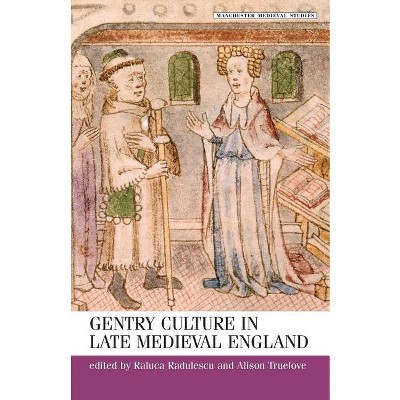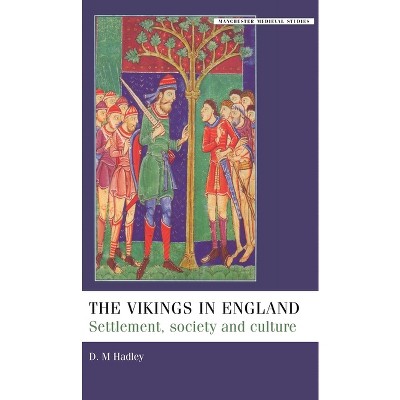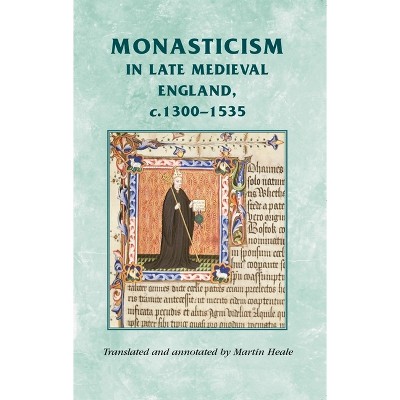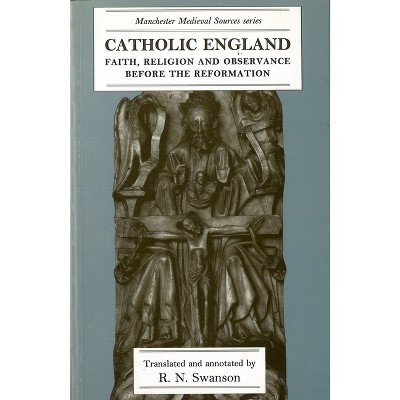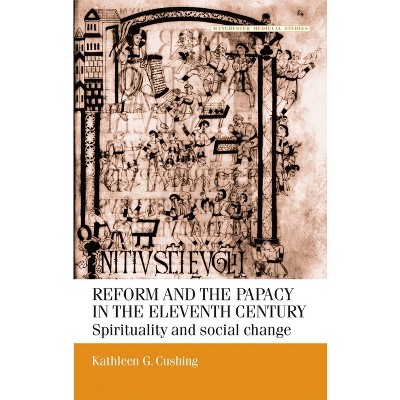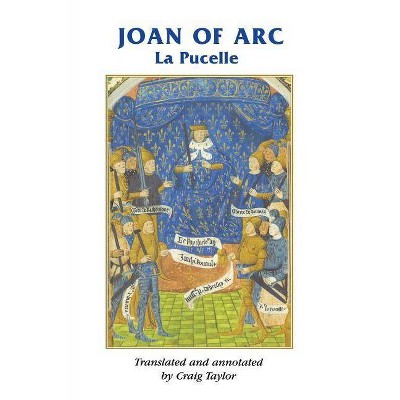Serfdom in Medieval England - (Manchester Medieval Studies) by Mark Bailey (Hardcover)

About this item
Highlights
- Serfdom was a coercive relationship between a landowner and peasant, which was widespread across medieval and early modern Europe.
- About the Author: Mark Bailey is Professor of Later Medieval History at the University of East Anglia
- 456 Pages
- History, Europe
- Series Name: Manchester Medieval Studies
Description
About the Book
Re-evaluates the mechanics and decline of serfdom in medieval England, casting new light on the nature of its economy and society, and the impact of the Black Death.Book Synopsis
Serfdom was a coercive relationship between a landowner and peasant, which was widespread across medieval and early modern Europe. It features prominently in major historical debates, such as the origins of capitalism and the divergent pathways of western and eastern Europe to modernity. Scholars have paid particular attention to English serfdom, which is usually portrayed as highly oppressive and a major cause of the Peasants' Revolt in 1381.
This comprehensive survey draws on a vast scholarship and new research to show how, in reality, English serfdom was weak, casting new light on the nature of its society and economy when the Black Death struck in 1348-9. The pandemic now assumes a central role in the rapid decline of serfdom, as illustrated in a case study of the estate of one of England's harshest landowners, St Albans abbey.From the Back Cover
Serfdom was a common form of legal and socio-economic exclusion in medieval Europe; reconstructing how it operated enhances our understanding of diversity and its significance in the human past. Furthermore, its operation and decline in medieval England feature prominently in four major debates in economic and social history: the causes of the crisis of the early fourteenth century, the role of the Black Death of 1348-9 in triggering fundamental socio-economic change, the role of class struggle in determining particular pathways of economic development, and the origins of capitalism.
English serfdom is traditionally portrayed as pervasive and oppressive and, as such, a fundamental cause of the pre-plague crisis and the Peasants' Revolt of 1381. This major survey draws on a vast scholarship and original research to show that, in reality, English serfdom was weak in this crucial period. The reasons, and the implications for our understanding of economic change, are explored. As a result of this weakness, the Black Death dealt serfdom a mortal blow long before the revolt, as revealed by three case studies documenting its rapid decline on the estate of St Albans abbey, one of England's harshest landowners and a key target in 1381. The book offers insights into the use of theory and evidence in history, and the sizeable gap that could exist between legal norms and actual practice on the ground. It provides the definitive reference point for comparisons with European systems of serfdom.About the Author
Mark Bailey is Professor of Later Medieval History at the University of East Anglia





